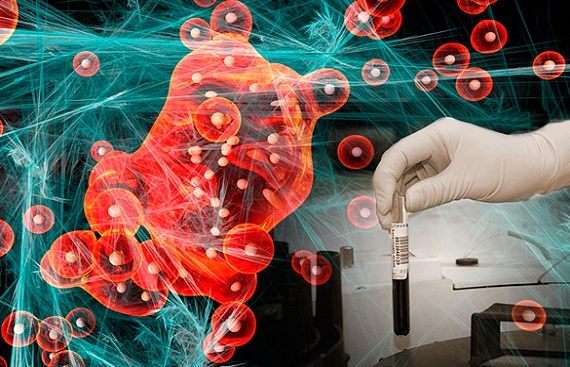Indian startup develops AI-based blood test to identify 32 tumours early
By Team Startupcity | Thursday, 13 April 2023, 04:02 Hrs

Even though early cancer detection is still crucial, Gurugram-based startup PredOmix has created a cutting-edge blood test that has 98 percent accuracy and can identify roughly 32 malignancies in both men and women. The business's patented OncoVeryx-F technology combines metabolomics (the study of tiny molecules) with Artificial Intelligence (AI) to detect the metabolite fingerprints of various malignancies in a single test.
"Metabolomics is a particularly suitable technique for cancer detection since metabolic reprogramming constitutes one of the hallmarks of cancer cells. By using appropriate big data algorithms, metabolite asignatures' characteristic of cancer can be accurately extracted from the serum metabolome," Dr. Kanury V.S. Rao, Co-Founder & Chief Scientific Officer (CSO), PredOmix, said. The test was first launched in 2022 and identified four major female-specific malignancies in a single blood test: breast, endometrium, cervix, and ovary. The company has now upgraded it to 32 cancers of both men and women that are notoriously difficult to otherwise detect.
These are pancreatic cancer, kidney cancer, liver cancer, brain cancer, and sarcomas. In addition to this, cancers that cause the most deaths in India - breast cancer, cervical cancer, stomach cancer, lung cancer, esophageal cancer, oral cancer and prostate cancer - are also covered. OncoVeryx-F also aids in determining the presence or absence of cancer as well as the tissue of origin or cancer type, the company said.
"The development of this test will have a considerable impact on cancer mortality, especially in situations when the early discovery of the disease might significantly improve treatment outcomes.This test will enable medical practitioners to detect cancer early, leading to more effective treatment regimens and a higher chance of survival," Rao said.
"Cancer needs to be addressed immediately because it is the main cause of premature deaths worldwide and the best way to reduce cancer-related mortality is still early-stage detection," he noted, adding that the current screening procedures can only detect a small number of cancers. For example, while the accuracy of mammography for breast cancer screening is between 80-95 per cent, that of either the pap test or colonoscopy for cervical and colorectal cancer screening is only approximately 70 per cent.
"Additionally, each of these screening methods is intended to find just one specific form of cancer. Symptoms that only manifest in the later stages of the disease still serve as the basis for the diagnosis of the remaining cancer types. We recognise the need for better screening methods and are proud to announce the expansion of our current cancer screening test to a 32-cancer test for both men and women, including hard-to-detect cancers for the Indian population," Rao said
To test their technology, a field study was conducted with blood samples collected from over 4,000 patients spread across different geographic regions of India. The company said the results were "excellent", and the average detection accuracy was 98 per cent. It has now filed a provisional international patent application with the World Intellectual Property Organisation (WIPO).
The company has also started clinical trials in India with over 10,000 individuals to help validate the findings. The Central Drugs Standard Control Organization now has granted the company a licence for their software to be used "as a medical device." However, the company claimed, "We will be finishing our Drug Controller General of India (DCGI) approved clinical trial in the next few months and plan to get DGCI approval soon." Currently, the test was produced in a lab.
The test for cancers particular to women costs Rs 12,000; it added that the test's price would alter for the 32 malignancies specific to males, which "is still under development and would be available later this year." AI-based blood test created by Indian firm to identify 32 tumours early.

